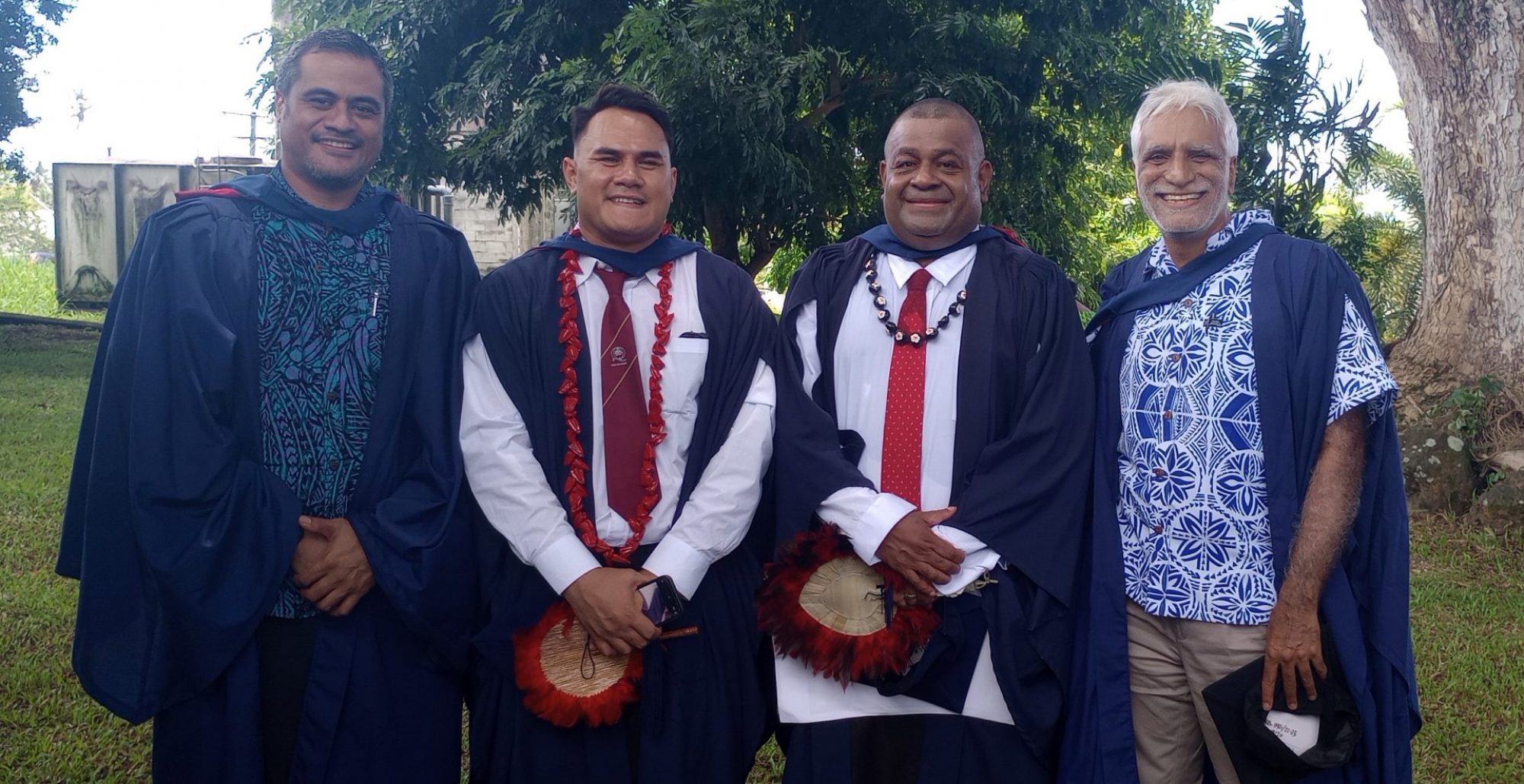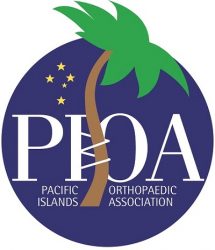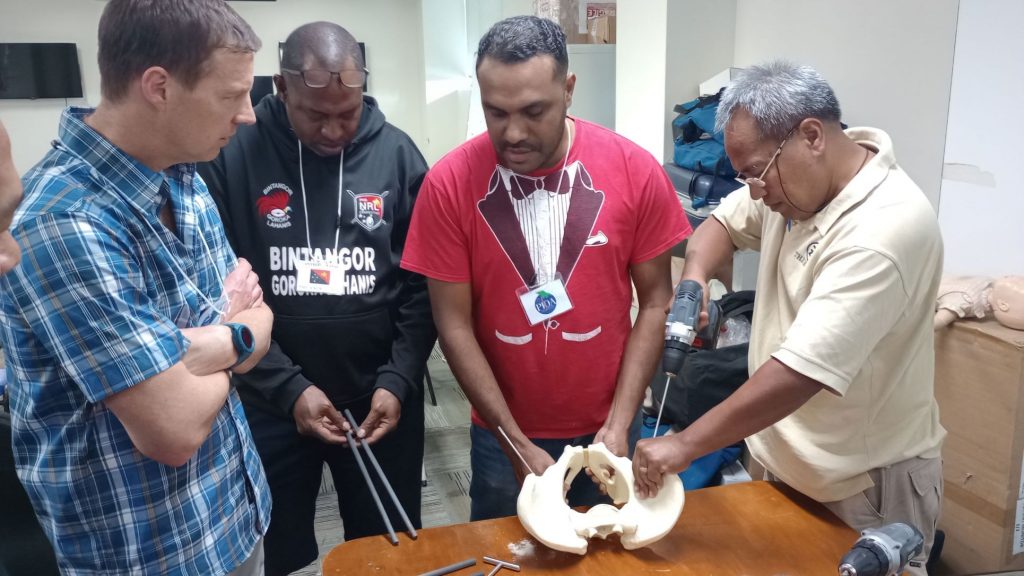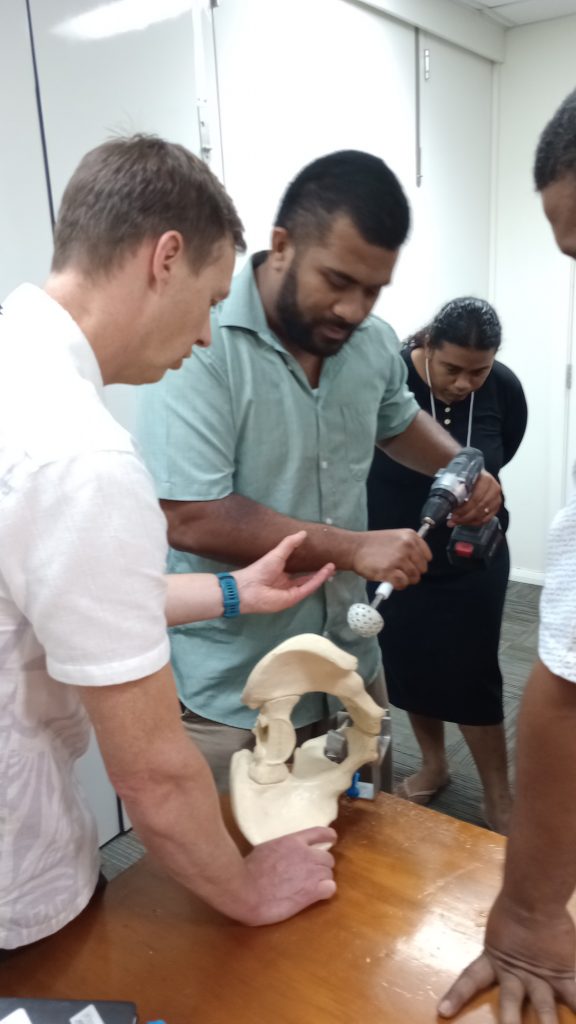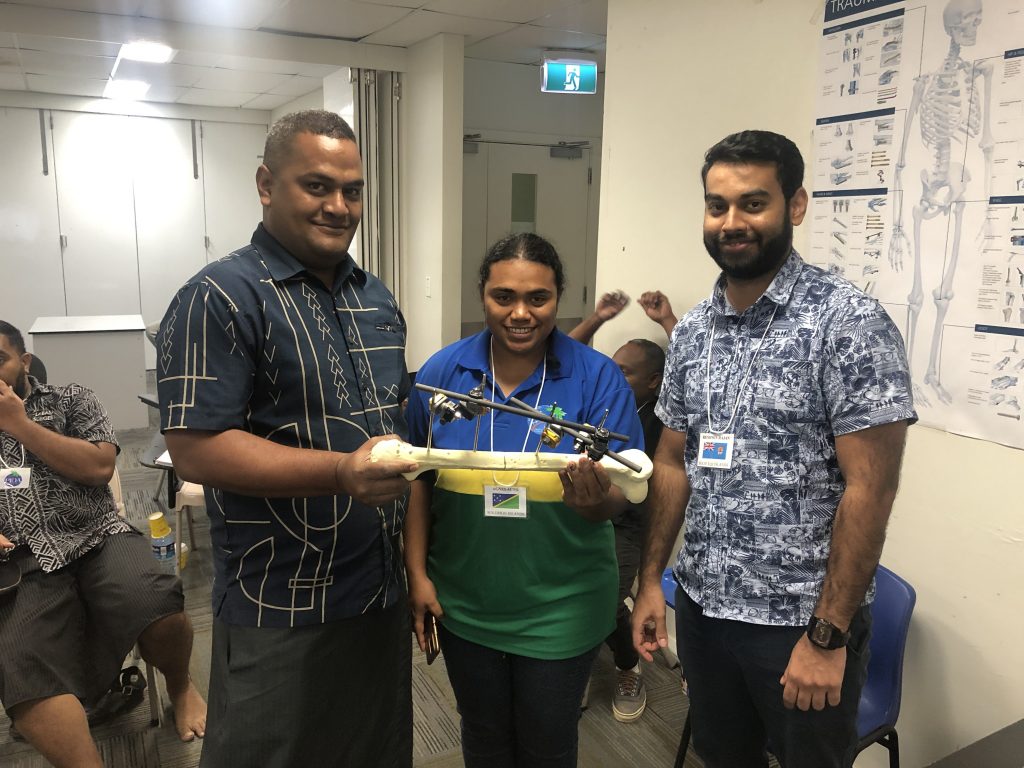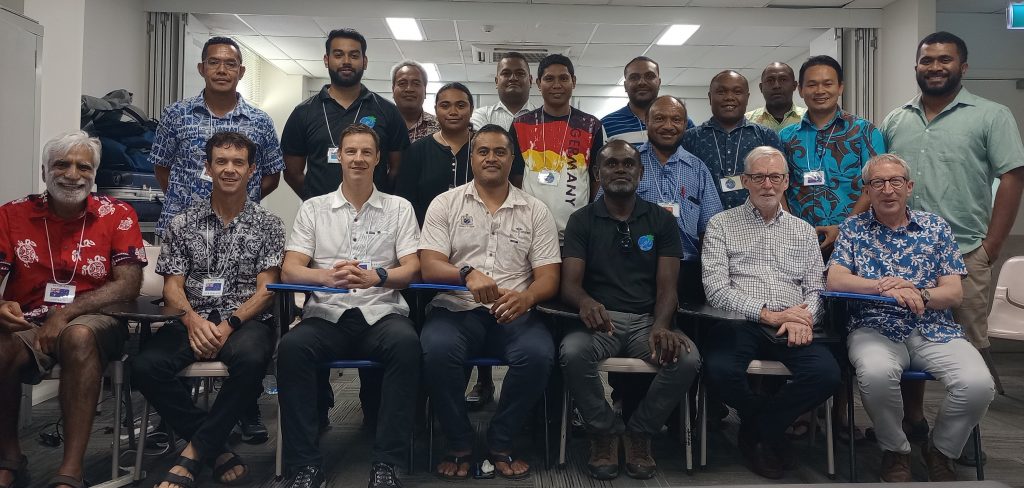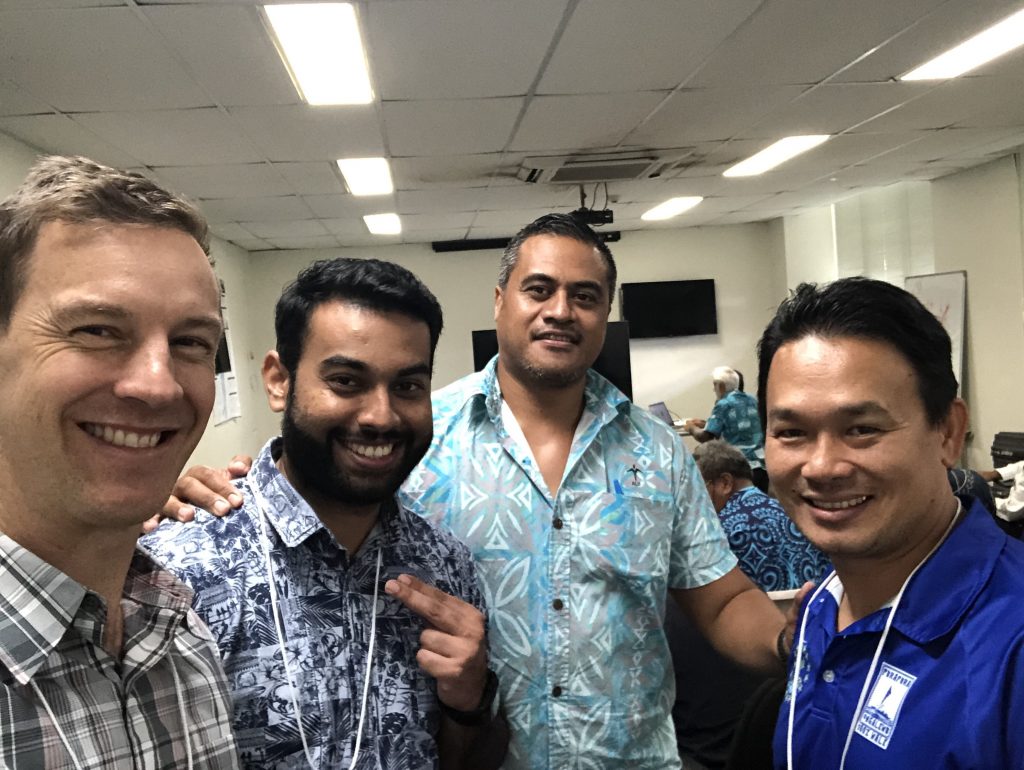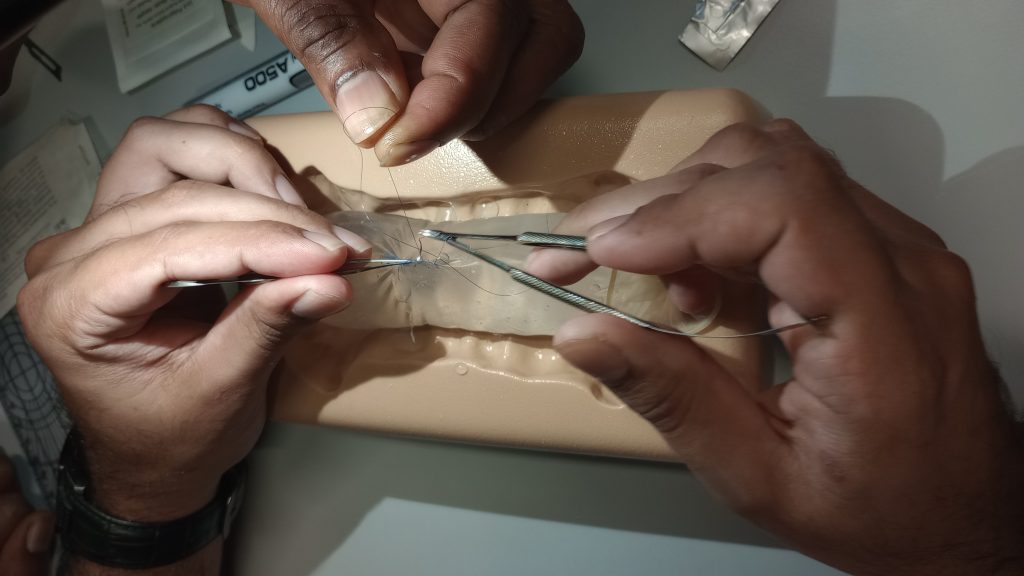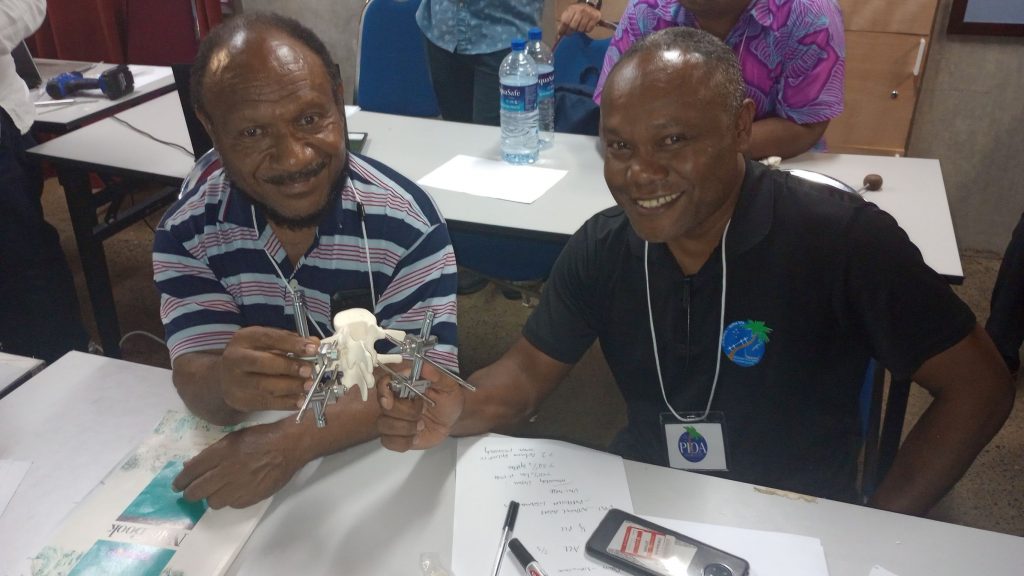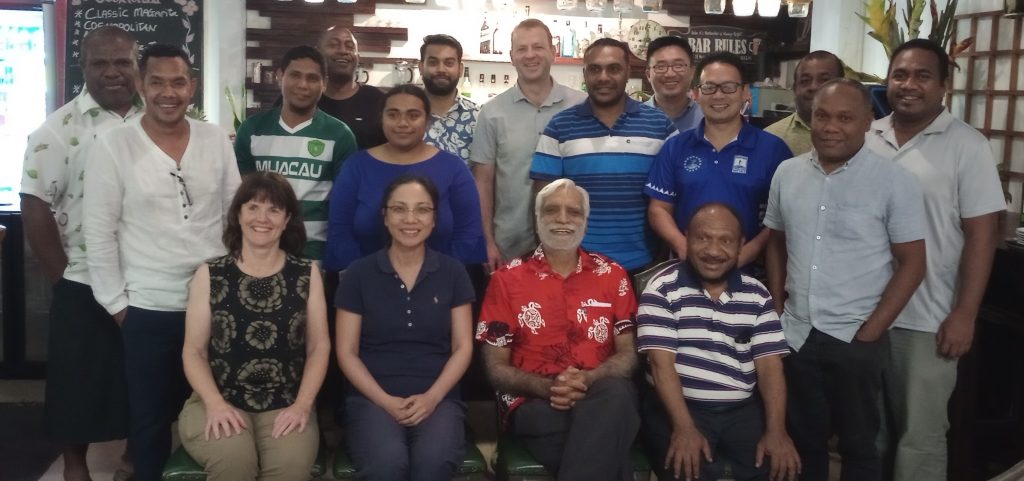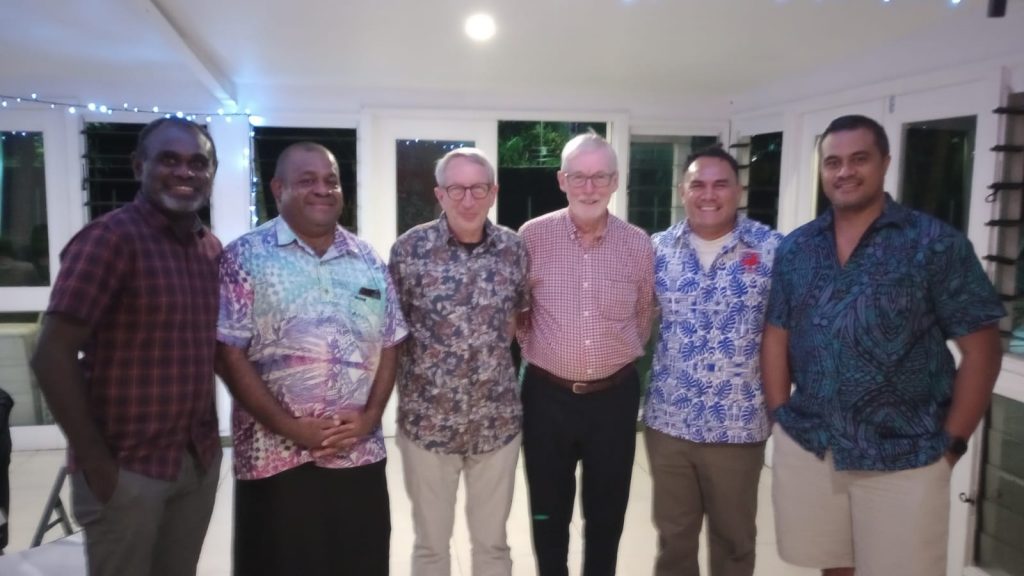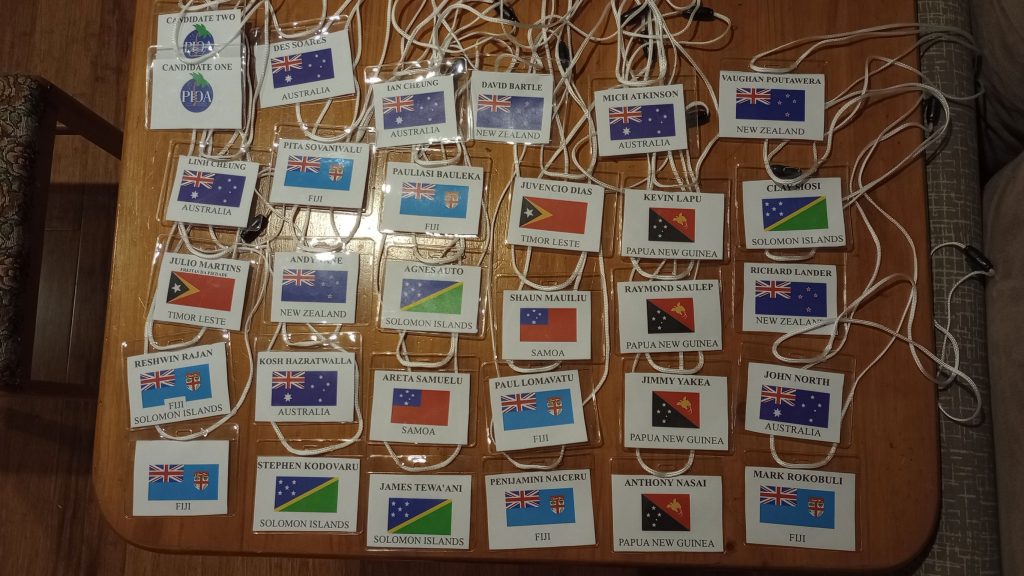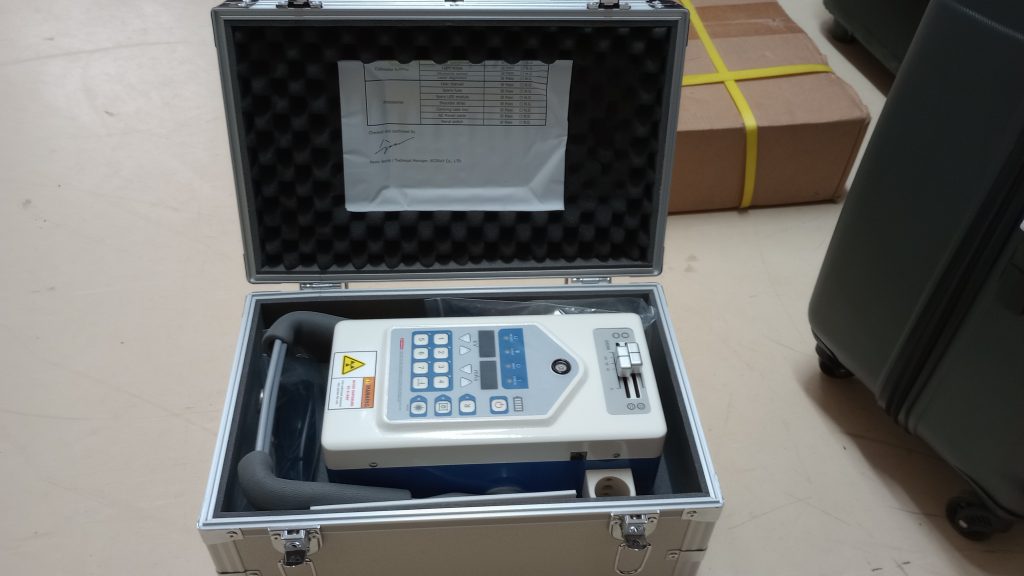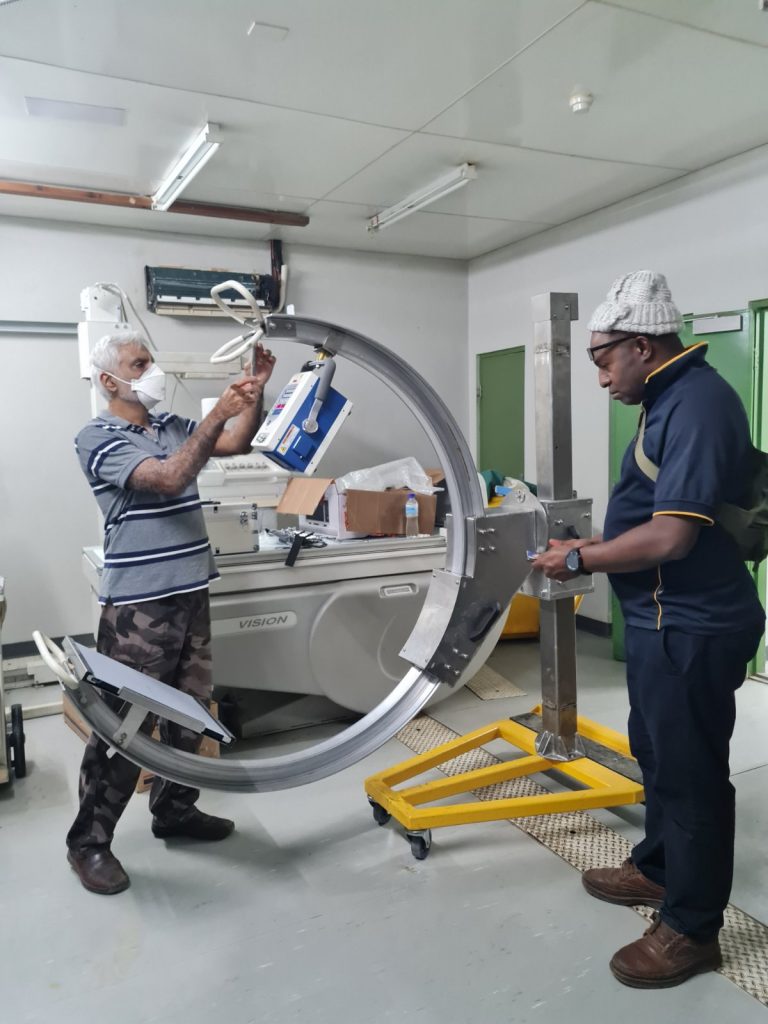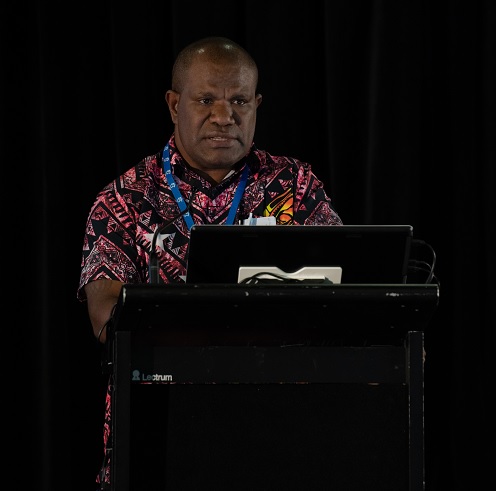Juvencio Dias (Timor Leste)
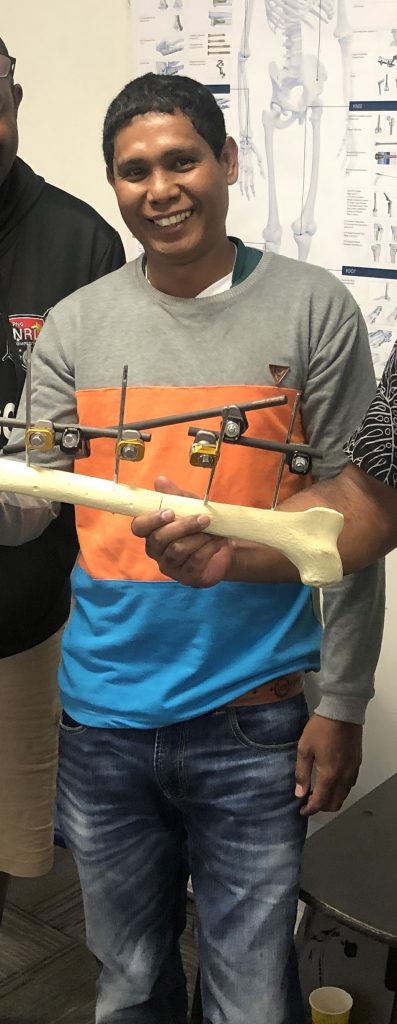
During 2 weeks Module in Suva I have learnt a lot about Hip and Spine. The Module is very practical and made it easy to understand how to performed surgery from different surgical approaches to Hip and Spine.
I also was able to see different cases in the ward, and was guided by Senior Orthopaedic consultants and best lecturers from Australia and New Zealand. I’m Very Happy to attend this Module in Suva and my Gratitude to PIOA and to CMWH (staff and Patients) as well.
Vinaka
Agnes Auto (Solomon Islands)
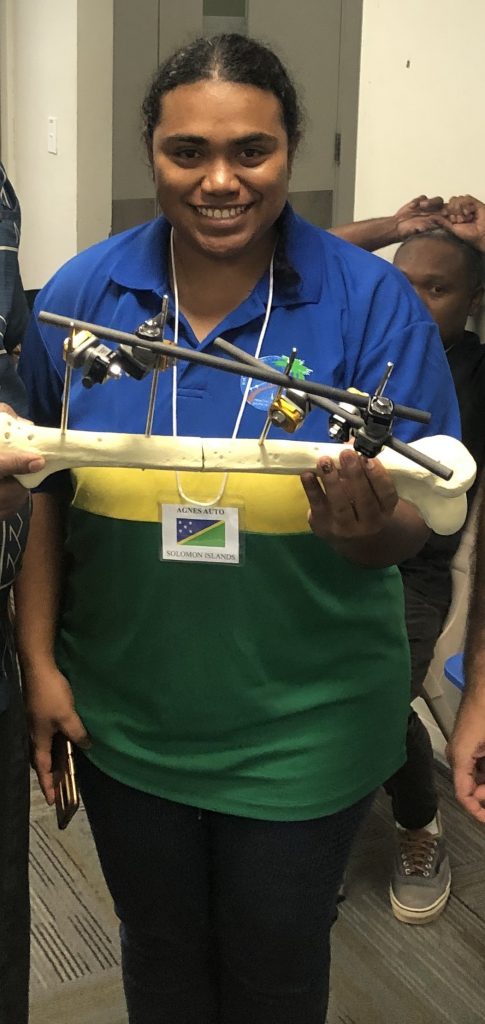
This learning experience has added value to my contribution in reducing Disability Advanced Life Years (DALY) in the Solomon Islands.
I feel more confident with the knowledge and skills learned, and am challenging myself to put these into practice the once I return home, to work with my Senior Colleagues .
I am thankful for the opportunity to grow with PIOA and grateful to the SPC for their support and enabling me to attend.
Tagio Tumas
Agnes
Clay Siosi (Solomon Islands)
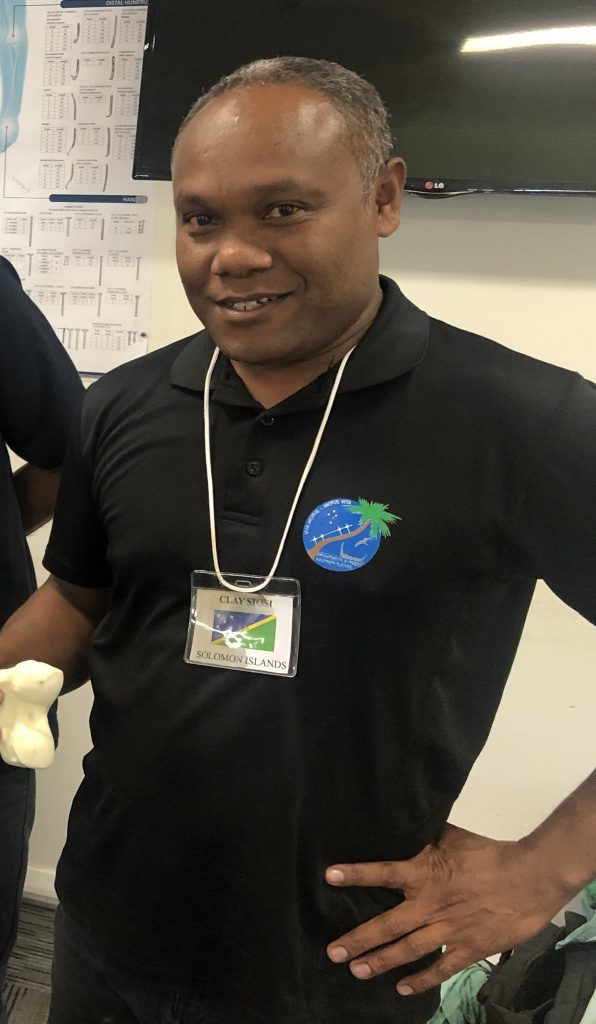
Spine – the learning I acquired through this training has broadened my understanding and management of spine pathologies or problems I see in my home country. It provide focused approach in identifying and managing my patients.
Hip – wealth of knowledge from the members of faculty. I learned about hip and pelvic trauma management. Their experience and expertise knowledge has opened up another level of understanding…
Best regards
Clay
Deacon Teapa (Cook Islands)
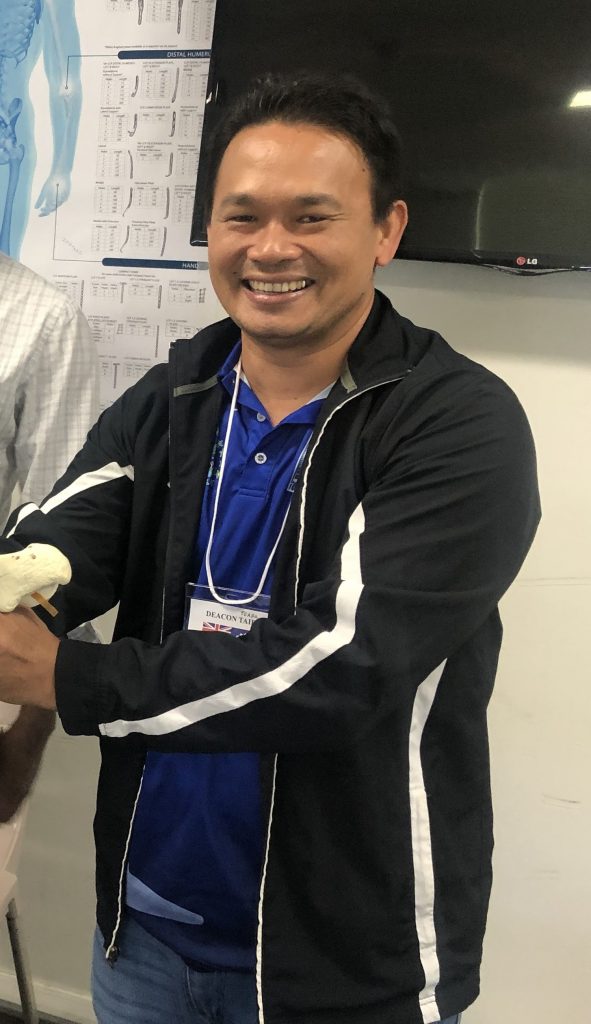
I would to say thank you to PIOA and SPC for giving this valuable opportunity for being part of this organization. Coming back from nearly 12 years of academic hiatus I find the last 2 weeks on the PIOA modules has been fulfilling and enriching to my personal professional development. The course has provided me an opportunity to reinforce my knowledge and past experience, learn new things and especially
operative skills sets from some of the best orthopaedic surgeons in Australasia. I look forward towards the next modules in the coming months and years.
ATAWAI WOLO (Thank you very much)
